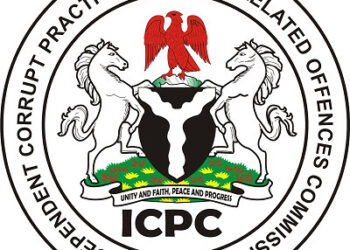The Federal Government (FG) has denied reports circulating in some national dailies regarding an alleged
ambassadorial nominees list.
In a statement released on Monday, Acting Spokesperson of the Ministry of Foreign Affairs, Kimiebi Imomotimi
Ebienfa, clarified that President Bola Tinubu will transmit the official list to the National Assembly once it is finalized.
Ebienfa urged the public to disregard the frenzy surrounding the ambassadorial list, assuring that the President will
forward the list of nominees to the National Assembly for screening and confirmation when it is ready. This
development comes after several newspapers claimed that some nominees were already undergoing security
screening and listed names of certain politicians allegedly included in the list.
The Federal Government’s denial of the reports has sparked a mix of reactions from the public, with some expressing
relief and others calling for greater transparency in the nomination process. The government’s assurance that the list
will be forwarded to the National Assembly for screening and confirmation has been welcomed by many, who see it
as a step towards ensuring that only qualified individuals are appointed to ambassadorial positions.
The ambassadorial nomination process has been shrouded in controversy in recent years, with allegations of
nepotism and favoritism. The Federal Government’s denial of the reports and assurance that the list will be forwarded
to the National Assembly for screening and confirmation is seen as a move to restore public trust in the process.
You may also like: 2027: Tinubu’s victory Guaranteed with Yari, Kalu, Ganduje, Ibori — Lamido
The National Assembly has a crucial role to play in the confirmation of ambassadorial nominees, and its members
are expected to scrutinize the list carefully to ensure that only qualified individuals are appointed. The confirmation
process is an important step in ensuring that ambassadorial nominees are fit for the role and can effectively
represent Nigeria’s interests abroad.
The Federal Government’s denial of the reports has also raised questions about the source of the leaked information
and the motivations behind it. Some have speculated that the leak may have been intended to create confusion and
undermine the government’s efforts to restore public trust in the ambassadorial nomination process.
The ambassadorial nomination process is an important aspect of Nigeria’s foreign policy, and the Federal
Government’s denial of the reports is seen as a move to ensure that the process is conducted in a transparent and
credible manner. The government’s assurance that the list will be forwarded to the National Assembly for screening
and confirmation has been welcomed by many, who see it as a step towards ensuring that only qualified individuals
are appointed to ambassadorial positions.
The Federal Government’s commitment to transparency and accountability in the ambassadorial nomination process
is crucial in restoring public trust. The government’s efforts to ensure that the process is conducted in a credible and
transparent manner will undoubtedly yield positive results.
The ambassadorial nomination process is an important aspect of Nigeria’s foreign policy, and the Federal
Government’s denial of the reports is seen as a move to ensure that the process is conducted in a transparent and
credible manner. The government’s assurance that the list will be forwarded to the National Assembly for screening
and confirmation has been welcomed by many, who see it as a step towards ensuring that only qualified individuals
are appointed to ambassadorial positions.




































